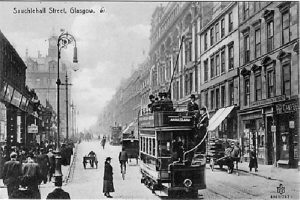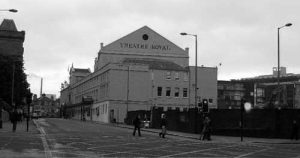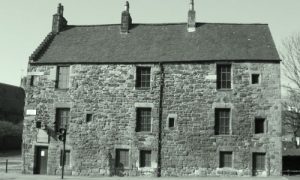Glasgow writer CATHIE DEVITT talks about growing up near the notoriously creepy Castlemilk House
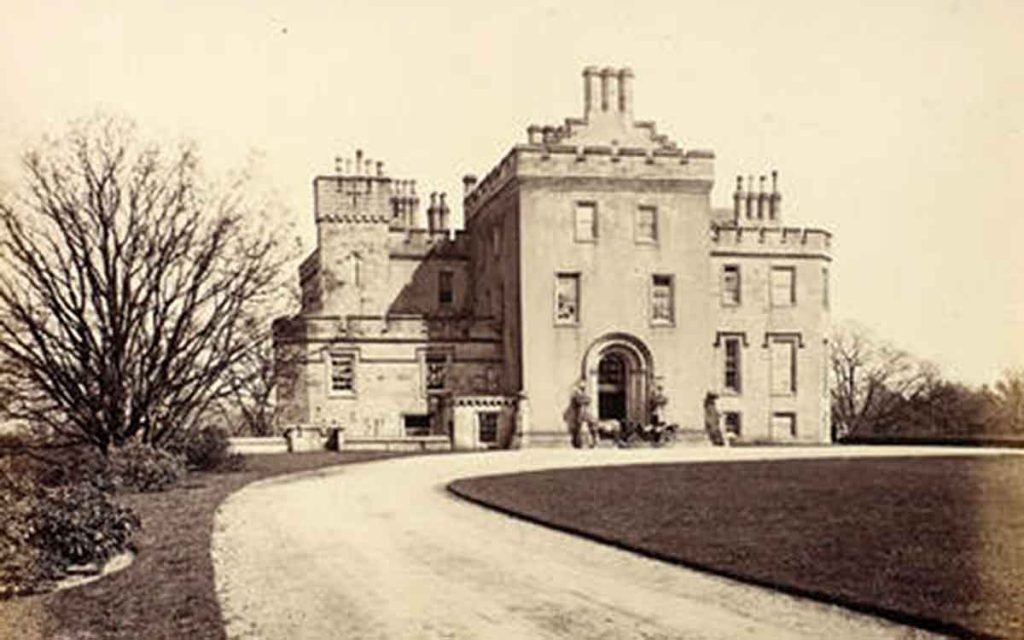
Glaswegians are well aware of the infamous council housing estates thrown up by “Glasgow Corporation” in the 1950s, built to tackle the problem of Glasgow slums and overcrowding in the city centre.
Most of the housing was in the form of tenement flats although three-storey terraced houses and multi-storeys became available.
The affordable rents provided tenants with “quality” housing, bathrooms and verandas, all set in healthy countryside.
Inhabitants of Castlemilk, of which I am one, know a different story.
The housing scheme was framed by rustic countryside including the Cathkin Braes, but the gem in the crown for us was Castlemilk House which, when I was at school was used as a Children’s Home.
The woodland, the lake (known locally as the pond) and the hump back bridge beside Castlemilk House was an adventure playground and a fantastical escape from the concrete jungle of the housing scheme.
As youngsters we didn’t know the history of the house which, I think, was a missed opportunity.
To have all that history literally on your doorstep should have been embraced by our school teachers and may have calmed our youthful imaginations which we used to share stories of ghosts and spooks.
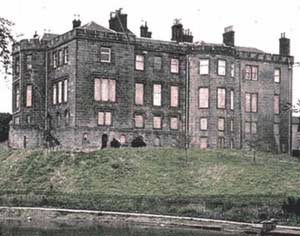
The children from the home attended our schools. They were often dirty and dishevelled wearing random clothes and shoes that didn’t fit and were nowhere near school uniform standards. Some became reclusive and withdrawn from being the subjects of bullying. The stronger children bartered for sweets and friendship with their tales of horror.
Sneaking through the hole in the stone wall that led to the grounds of Castlemilk House was a popular initiation for local gangs.
Friends insisted seeing headless ghosts walk the grounds whilst others were convincing in their reports of banshees wailing through the night in the clock tower.
My love was sitting on the bridge looking into the water for the “Lady of the Lake”.
She never did appear to me.
When the body of local schoolgirl Christine Lee was discovered near the pond in 1990,
I thought back to my childhood and realised that Castlemilk House would always be a magnet for children despite the fact that only the Clock Tower remains.
Castlemilk was at one time the country estate of the Stuarts of Castlemilk, who had connections with the ancient royal family of Scotland. Sir John Stuart was the 5th (and last) Baronet of Castlemilk died on 18th January 1897.
Mary Stuart (Mary Queen of Scots) slept in Castlemilk House on the eve of the battle of Langside.
Unfortunately, the battle was lost and Mary spent the remaining 19 years of her life as a prisoner of her cousin, Queen Elizabeth of England, before being beheaded on 8th February 1587.
In more recent history, Castle milk House was used to house evacuees during the second world war of 1939-1945. It was then used as a Children’s Home until the early 1960s.
The building of Castlemilk House, a stately old mansion built around Cassilton Tower, was started in 1460 on the site of a 13th century castle, and was demolished by Glasgow Corporation in 1969.
The Georgian B listed Clock Tower currently houses a children’s nursery, Castlemilk Environment Trust, training rooms and leisure space for meetings, clubs and other activities.
I can’t help but wonder at the irony of having a Children’s Nursery now active in the Clock Tower in stark contrast to the misery of the evacuees and orphans who spent time there under very different circumstances.
CATHIE DEVITT is a writer from Glasgow. She has written and performed in theatre, stand up comedy, and trained as a Laughter Yoga teacher. Her writing is as varied as her life experiences. Cathie has written about The Witches of Bargarran for children, and her research on her current adult publication “Don’t Drink & Fly” has led to her being invited to facilitate a creative writing workshop at Witchfest International in 2014.


